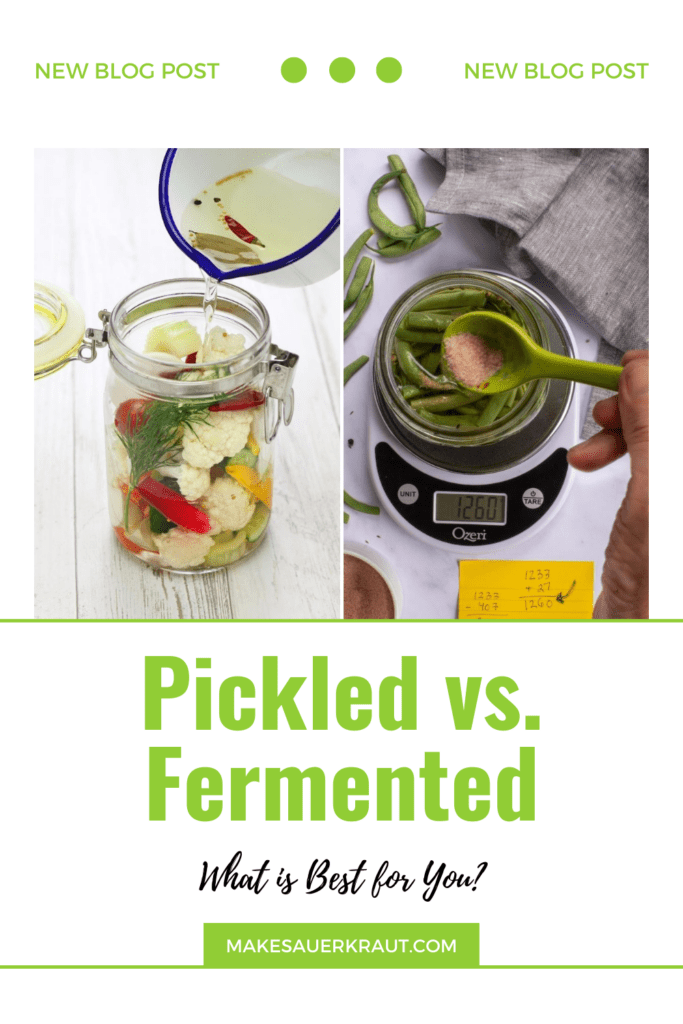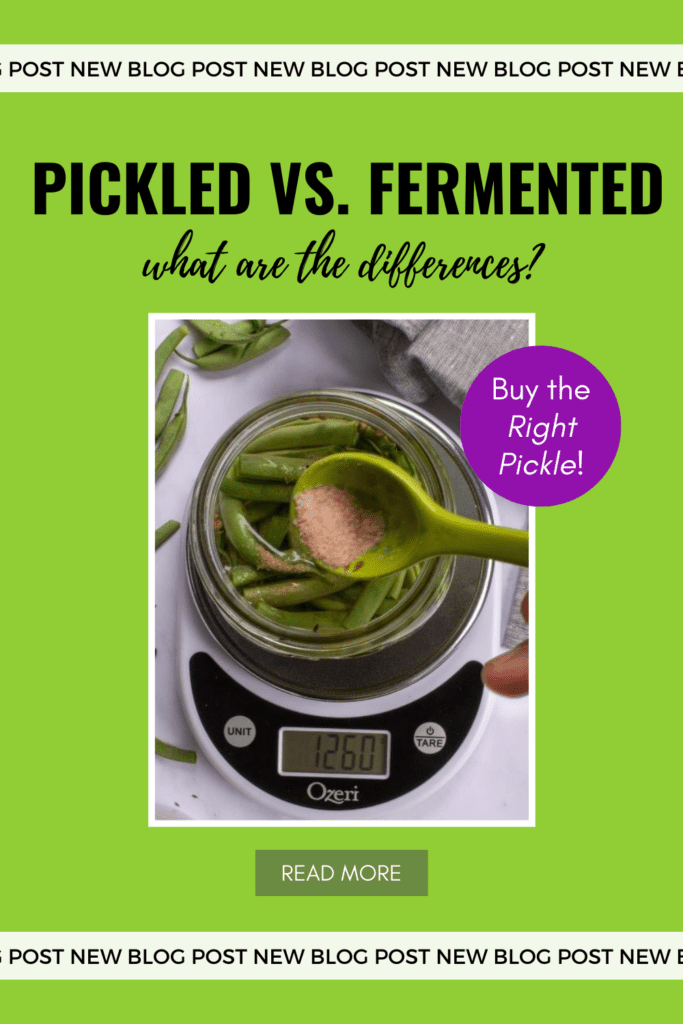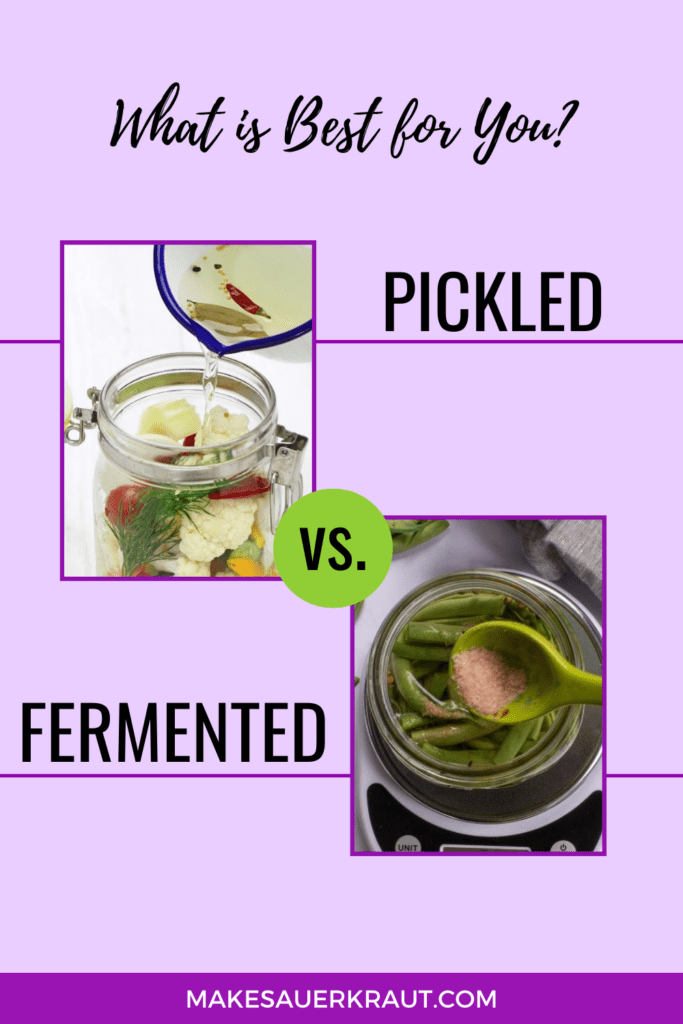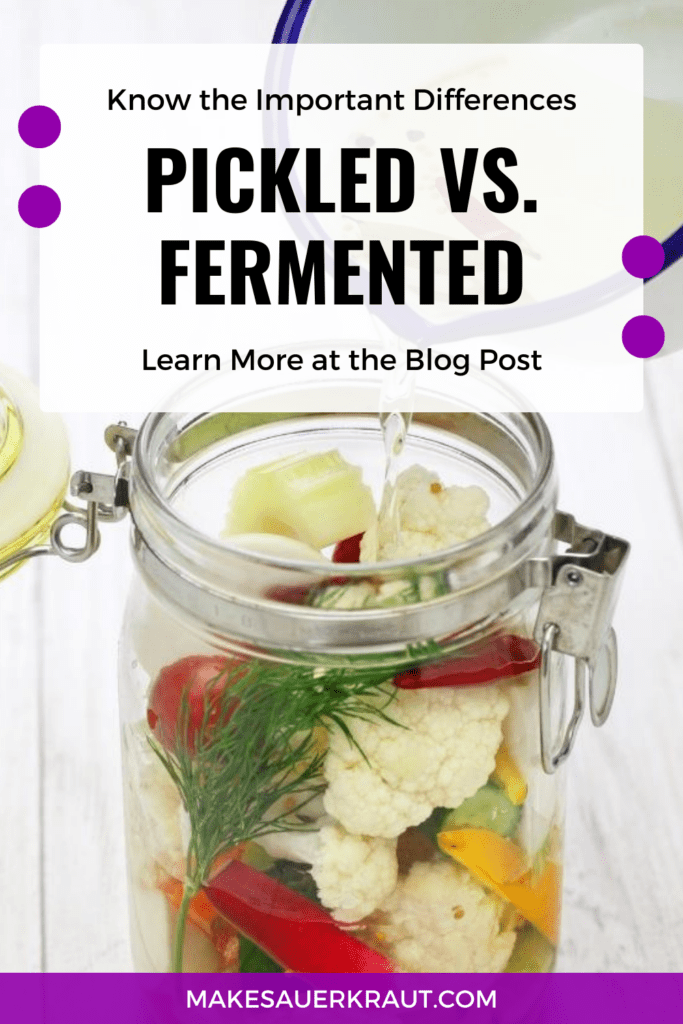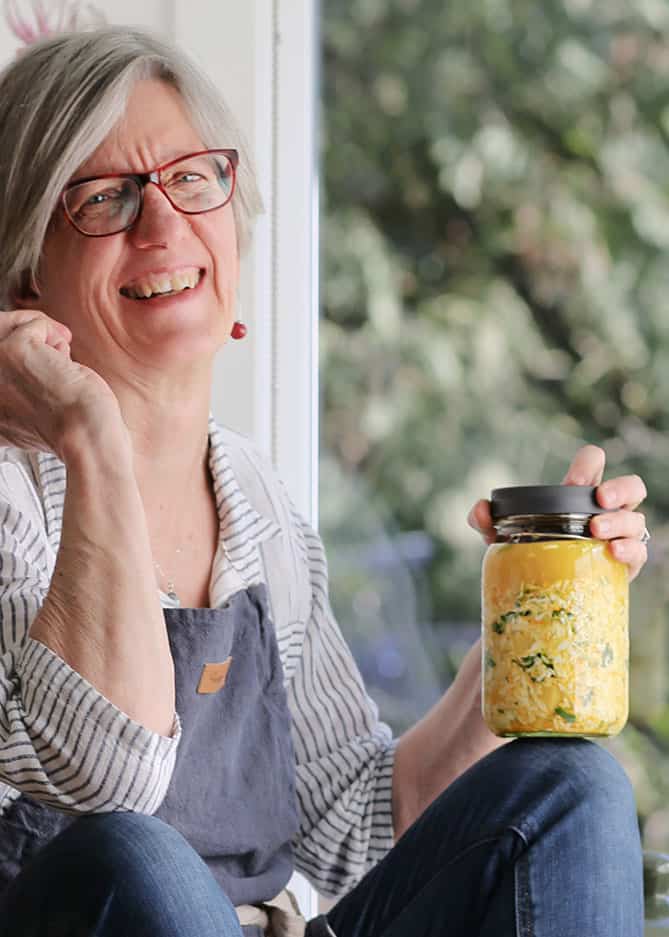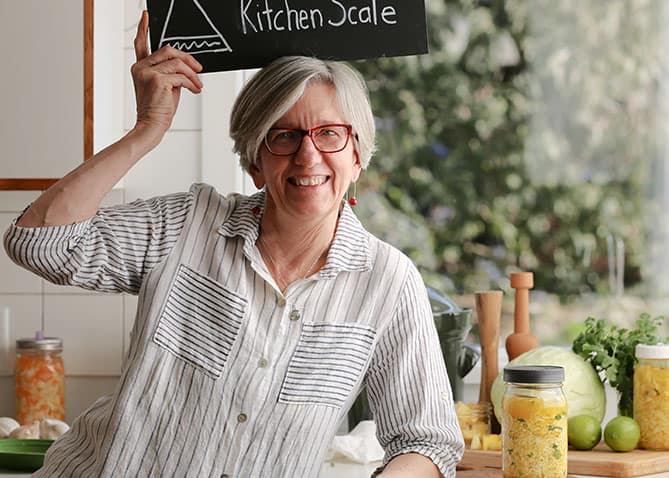Many people are unaware of the differences between pickled and fermented foods. Despite their similarities, these two food preservation methods have unique characteristics and offer distinct health benefits.
If you’re wanting to consume the most nutritious pickle to garner the gut health benefits from fermented foods, you’ll want to understand the difference.
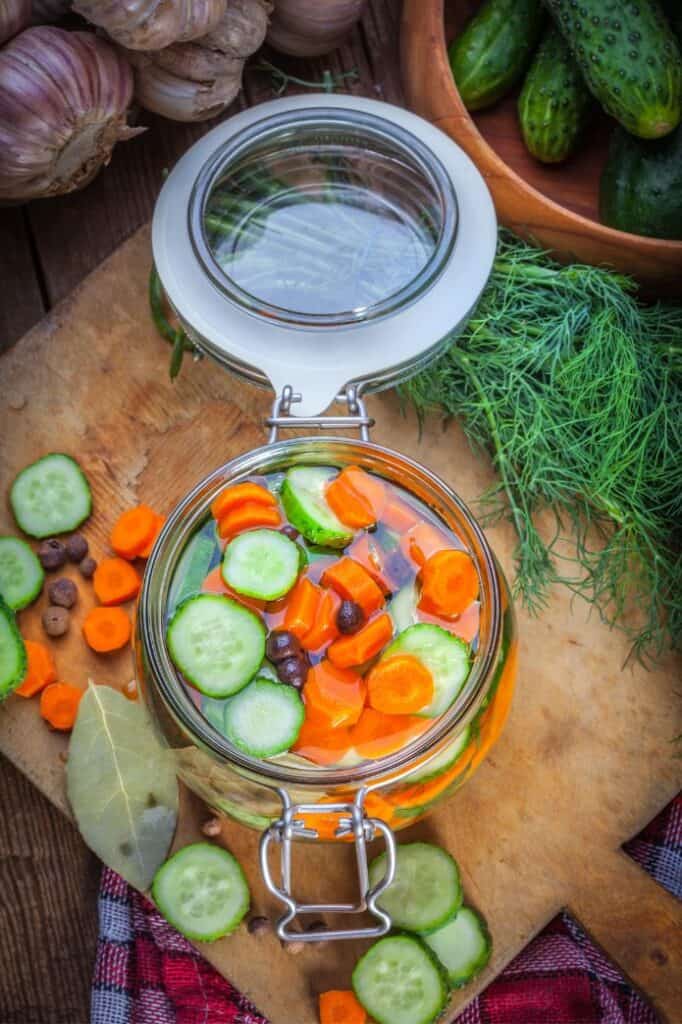
Are you confused about the difference between pickling and fermenting?
Both are popular food preservation methods that have been used for centuries, but they differ in many ways, from the ingredients used to the health benefits they offer.
If you’re wanting to consume the most nutritious pickle and garner the greatest health benefits from fermented foods, you’ll want to understand the difference.
What is the Right Pickle?
Like other fermented foods, the Right Pickle is rich in naturally produced probiotics and beneficial digestive enzymes.
The Right Pickle is fermented in the same manner that our ancestors did for thousands of years.
The Right Pickle is alive!
In this article, we’ll take a closer look at the pros and cons of pickling and fermenting, their effects on food flavor and texture, and their respective health benefits.
Let’s start with…
What is Pickling?
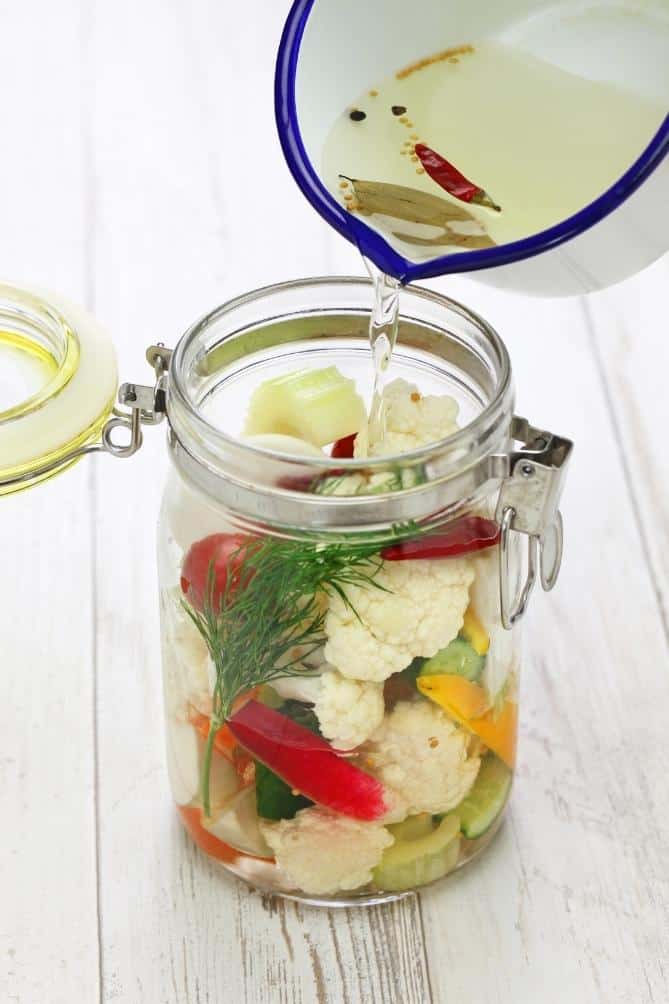
Pickling is a general term and refers to the process of preserving foods in an acidic liquid—vinegar, lemon juice, or a naturally created one.
When we hear the term pickle, most think of that dill pickle spear commonly served alongside a sandwich.
Usually, these and other modern-day pickles have been pickled with vinegar, which has been heated to sterilize the vegetables and destroy all bacteria—both the beneficial and the pathogenic bacteria.
Most pickles that you buy at the store are pickled in this manner and use heat or pressure to make them shelf stable. You could call them vinegar pickles.
Vinegar pickling is a fast way to create a consistent shelf-stable product devoid of beneficial bacteria.
Other terms used to describe this process are:
- pickling
- vinegar pickling,
- quick pickling, and
- refrigerator pickling.
There’s nothing wrong with vinegar pickles. But, if you want the gut health benefits that the fermented version offers, they are not the Right Pickles.
Brine Pickling
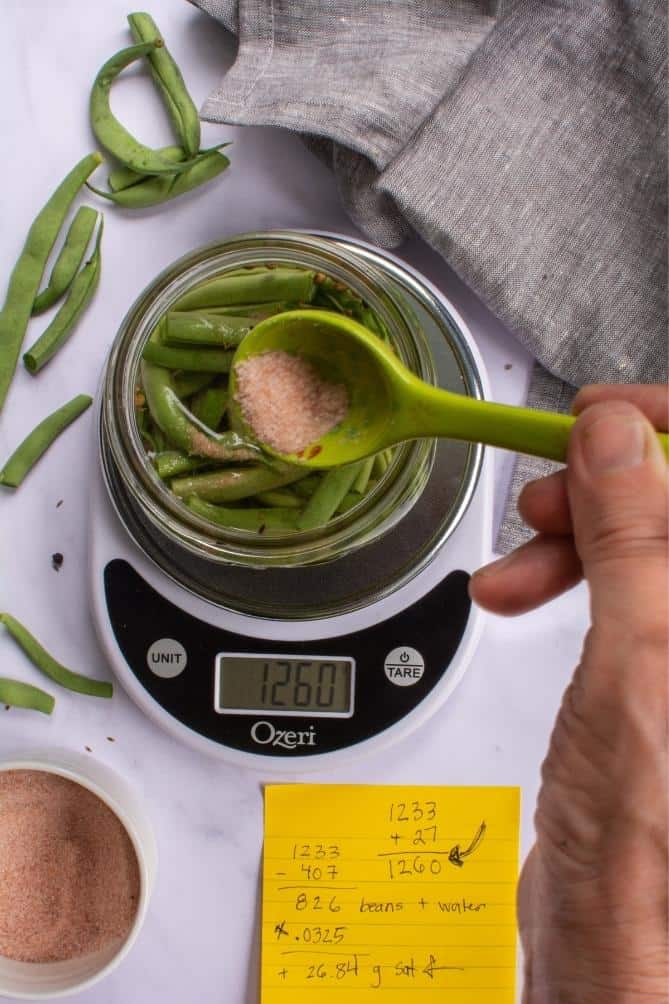
Brine pickling is both a fermentation method and a pickling method. That’s part of the confusion.
Instead of adding an acid, like vinegar, to the foods, a salty brine is poured over the vegetables and then they’re left to ferment at room temperature on your kitchen counter.
This allows the bacteria that are naturally present on the vegetables to produce the acidic medium—lactic acid—that gives the pickles their sour flavor and naturally preserves them.
Beneficial bacteria and enzymes are preserved. Pathogenic bacteria cannot survive in the salty, acidic brine and they die off.
A win, win!
This fermentation process can be used to pickle just about any vegetable and many fruits.
This is the Right Pickle to buy or make if you’re looking to support your gut health.
And, until modern-day pickling was introduced these were the only type of pickles consumed.
Little did our ancestors know that they were caring for their gut by eating a variety of pickles, and other fermented foods, naturally preserved by bacteria.
Benefits of Naturally Fermented Vegetables
There are many advantages of using brine pickling to preserve vegetables instead of the high-heat, high-pressure techniques of modern-day pickling.
The process of brine pickling:
Creates probiotic organisms to colonize the gut and produce real health benefits.
Preserves and sometimes enhances the enzyme content of the vegetables.
Produces the bioavailability of various vitamins and nutrients.
Improves the digestibility of both the vegetables being preserved and the foods consumed along with them.
These same nutritional benefits are produced when making naturally fermented sauerkraut.
Buy the Right Pickle
Ready to go in search of the Right Pickle?
Look in the right place. And, good luck. Twenty years ago—when I first started my sauerkraut journey—there were few if any, options for the Right Sauerkraut in my local grocery store.
Today, you’ll be hard-pressed to find the Right Pickle in a grocery store.
Naturally fermented pickles are alive and will continue to ferment past their peak stage unless kept in the fridge.
If you find them on a shelf in the middle of the store, they are most likely pickled in vinegar.
For this reason, look for the Right Pickle in the refrigerator section of health-food stores, farmer’s markets, or some of the more progressive grocery stores.
Then, check the label, passing on products that list vinegar, sugar, chemicals, or preservatives or indicate that they have been pasteurized.
Ingredients should be just the vegetable being pickled (cucumber, asparagus, beets, etc.), seasonings, salt, and water.
On the label, you should terms such as:
Brined
Lacto fermented
Live probiotics
Raw
If it’s on a shelf down one of the aisles—the stuff is dead—leave it on the shelf!
Through an internet search for the Right Pickles, I found only Olive My Pickle (Florida), Brined (Ontario), and Oregon Brineworks (Oregon).
Make the Right Pickle
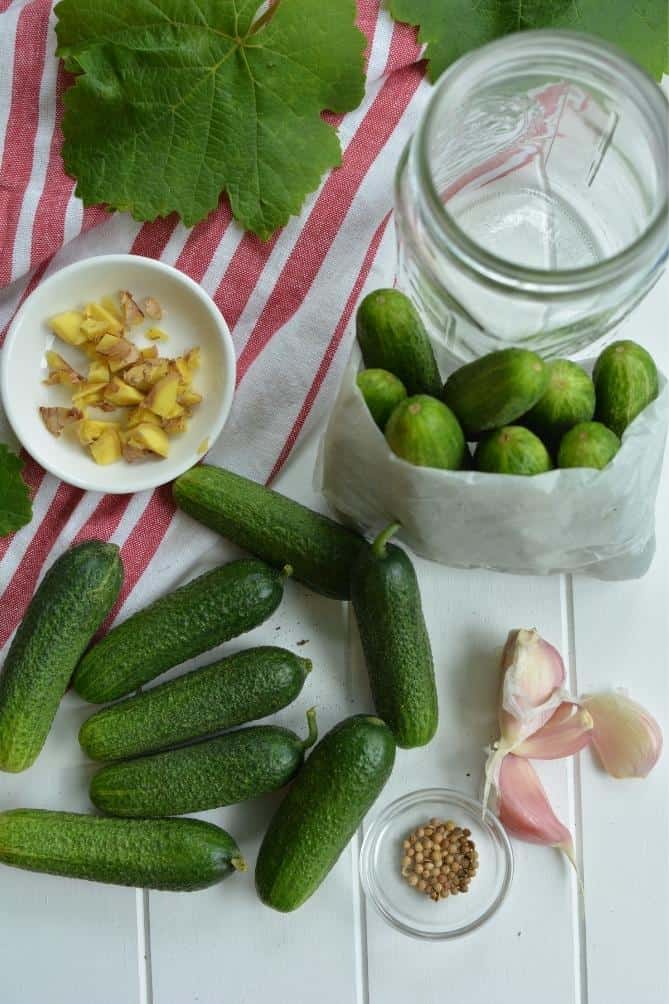
If you want to consume and enjoy the health benefits of crunching into the Right Pickle, you’ll want to learn to make your own.
Brine pickling, a fermentation process, is easy, inexpensive, rewarding, and a great way to take care of your own health… one bite at a time.
It can be used to pickle asparagus, carrots, beets, zucchini, or just about any fruit or vegetable.
If you’re looking to make that classic dill pickle, grab any supplies you need and head to my extensive post Naturally Fermented Pickles: The Complete Guide, and get started today.
Frequently Asked Questions about Pickles
Most store-bought pickles are not fermented. Claussen pickles, Kosher pickles, Vlasic pickles, etc. are made using vinegar, heat processed to make them shelf stable, and usually contain preservatives (sodium benzoate), and other unwanted ingredients (natural flavor, polysorbate 80).
Fermented pickles contain naturally occurring enzymes, probiotics, and bioavailable vitamins that are essential for maintaining good gut health. Pickled vegetables, that have been made with vinegar and processed with high heat, do not have these benefits.
Kimchi is fermented through a process called lacto fermentation, so named for the lactobacillus bacteria responsible for the fermentation process. Napa cabbage is chopped and then left to soak in a salty brine. It is then drained and mixed with Korean red pepper, seasonings, and other vegetables and left to naturally ferment. Through fermentation, bacteria present on the vegetables create lactic acid to preserve them and add flavor.
Sauerkraut is fermented, though most store-bought sauerkraut has been pasteurized to make it shelf stable. Brands that have been processed, heated, or have added vinegar will reduce or negate the probiotic effects naturally fermented sauerkraut provides.
What is your favorite pickle? What type of pickles have you made? Share with us in the Comments section.
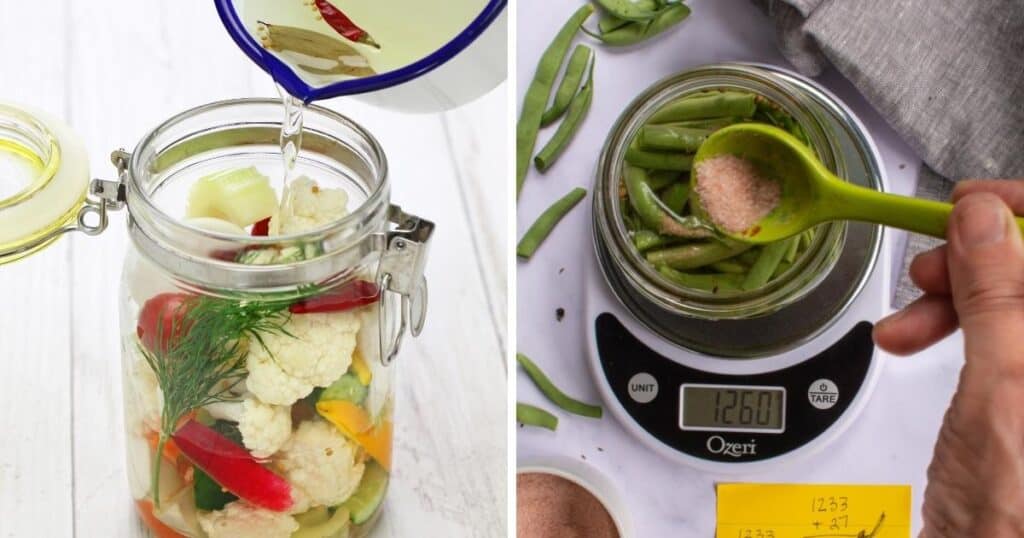

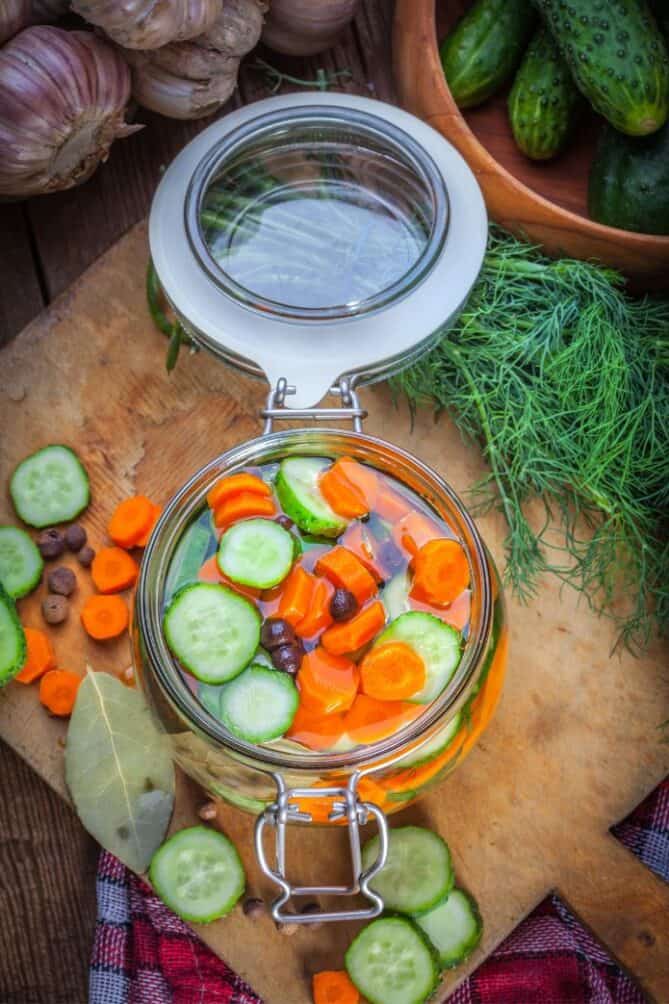

 This post may contain affiliate links which won’t change your price but will share some commission.
This post may contain affiliate links which won’t change your price but will share some commission.